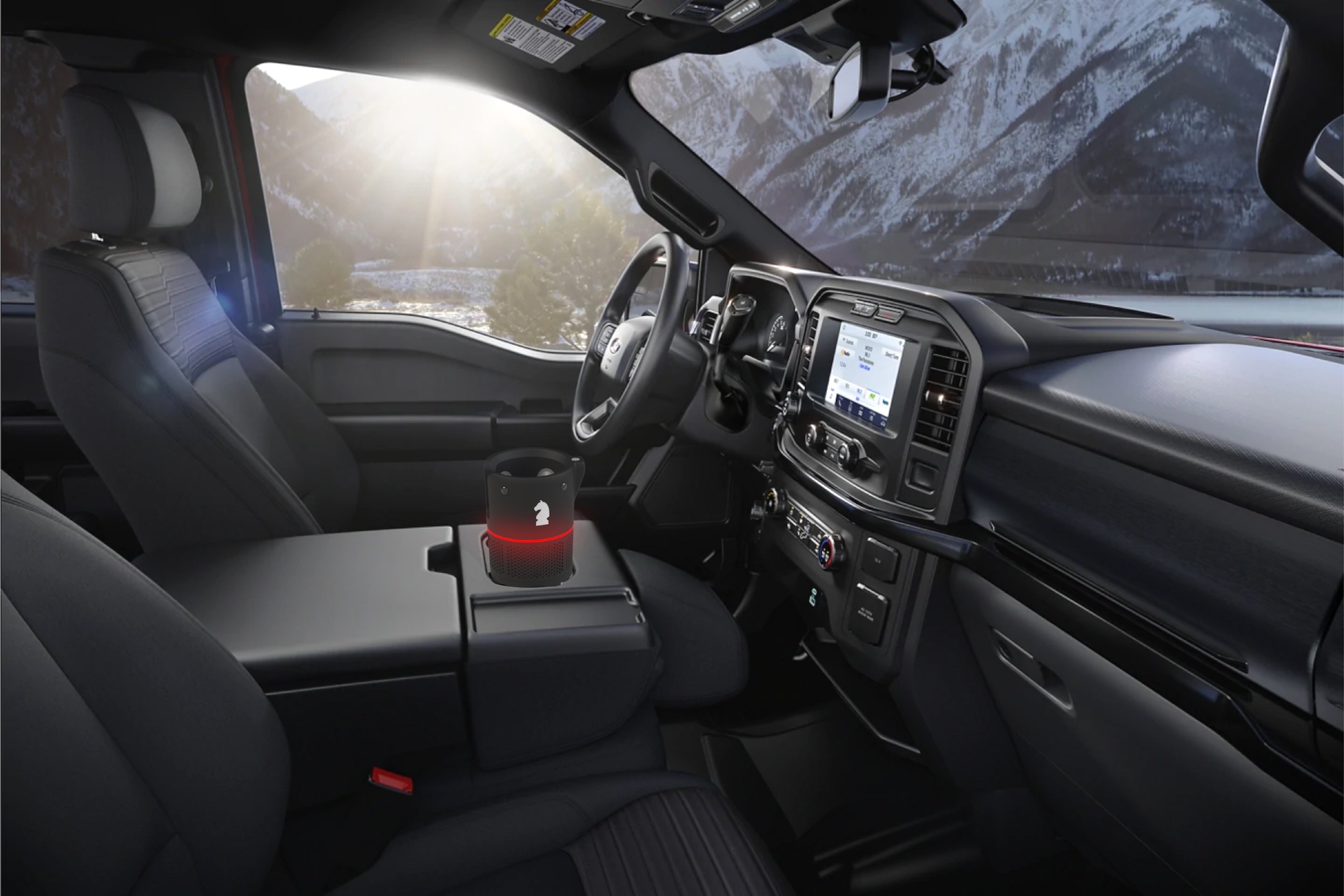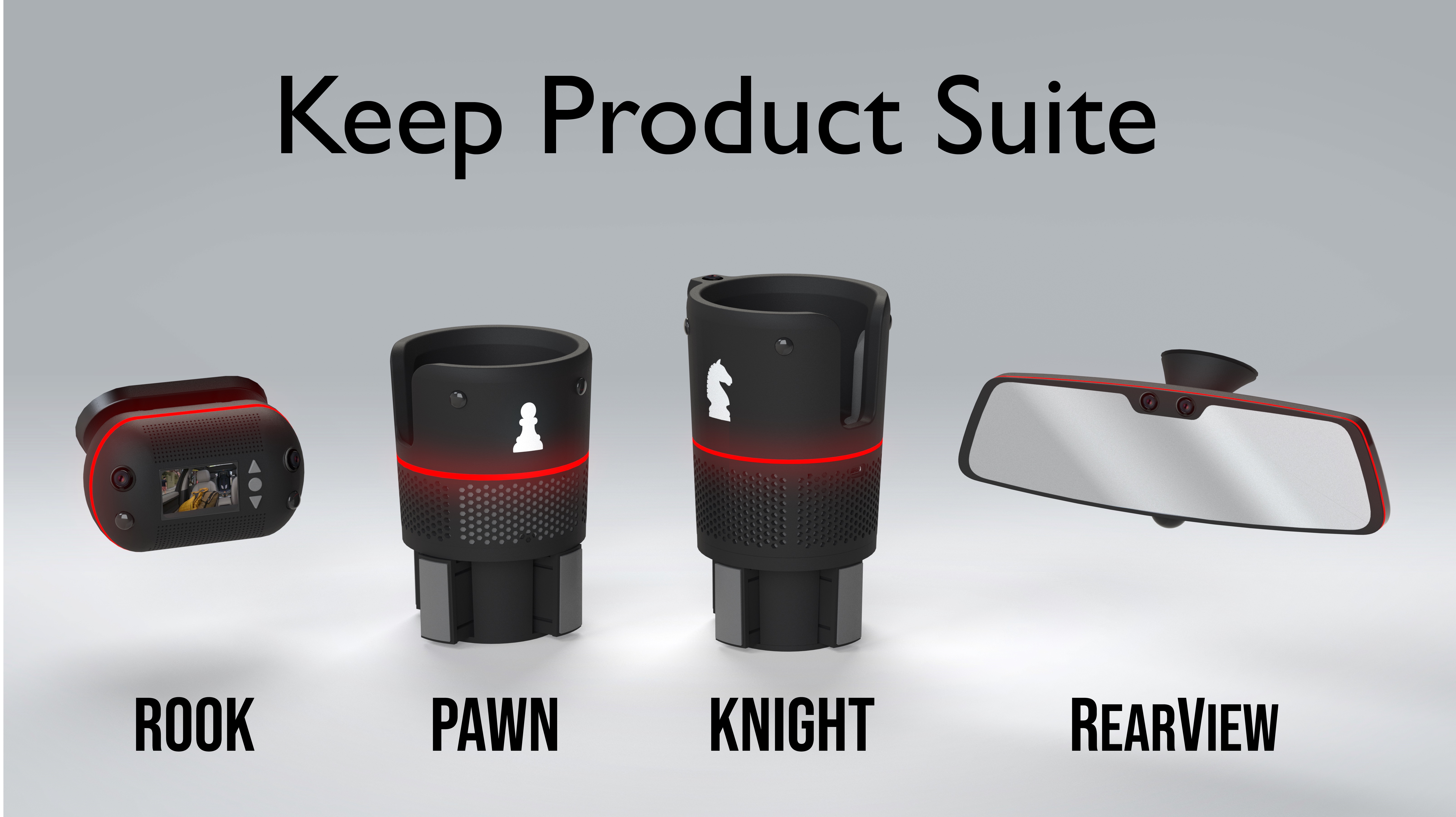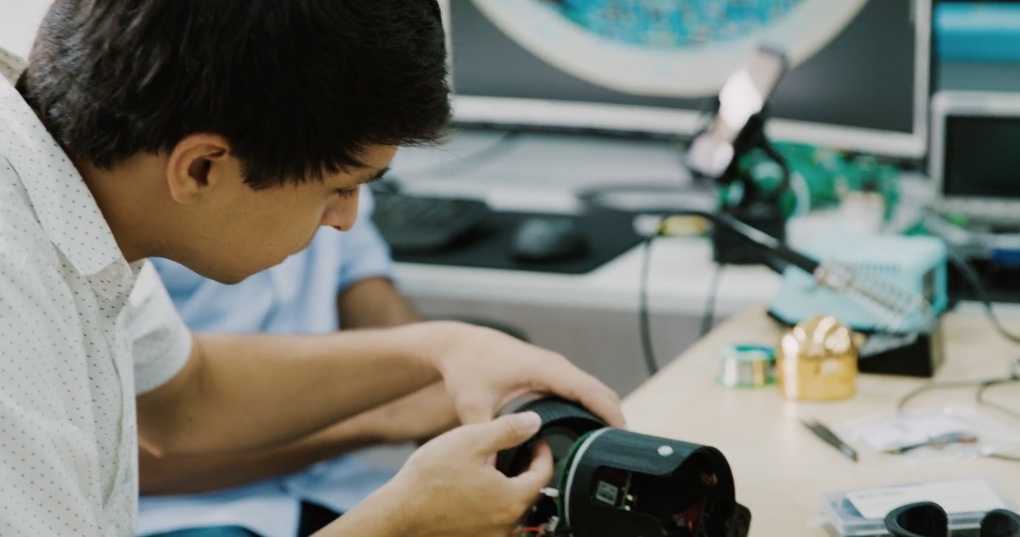David Moeller wasn’t looking to start another company. He had already earned the serial entrepreneur badge with CodeGuard, a website backup startup, and his hardware company Claw Hanging Systems.
But a series of car break-ins prompted Moeller to search for a product that would keep his vehicle safe. What he found was a gap in the market and an opportunity to fill it.
Moeller spent several years researching and developing prototypes and business plans for what would eventually become Keep Technologies. The Atlanta-based startup, which debuted virtually at the TechCrunch Startup Battlefield, was officially founded in fall 2020.
“I was really looking for a reason not to start this,” Moeller said, noting that he spent months conducting market research, a patent study, surveying consumers and then eventually building out a prototype. “I had just sold my company, and at the time I was thinking, I should be focusing on golf and I’ve got a young daughter. I wanted to find the red flag or a reason not to do this.”
Moeller didn’t find that reason. Instead, he developed a suite of smart devices for safety and security in vehicles and an accompanying cloud service and a mobile app. Its flagship product is the Knight, an intrusion and motion detector that locks into the cup holder of a vehicle. And yes, the cup holder can still be used.
Keep’s technology, of which it has secured five utility patents and another 16 pending, has already attracted several investors. Moeller initially used his own funds to bootstrap Keep. The company has since raised $4 million from several investors, including Cloudflare co-founder and CEO Matthew Prince, Tom Noonan, who is the founding partner of early-stage technology investment firm TechOperators, Bert Ellis of Ellis Capital, Kenzie Lane Innovation CEO Tripp Rackley and Jerry Perullo, who is the chief information security officer of the Intercontinental Exchange.
How it works
Keep Technology’s Knight device connects to the OBD port in a vehicle. The cord can run underneath the floorboard and then up to the center console of the vehicle, where cup holders are typically located. The Knight is placed into the cup holder and becomes activated once the owner twists the device so it is anchored into its location.
The Knight cannot be uninstalled by anyone but the user, Moeller told TechCrunch, adding that some of its patents are related to alarm functionality during the installation and the removal of the device. The Knight is equipped with a camera that provides a 180-degree view. It also has cellular bandwidth, as well as passive infrared (PIR) and microwave sensors to detect motion outside and inside the car.

What this all means is that the Knight can record video of a person breaking into the vehicle, send that data to the cloud and push it to the user’s mobile device. Keep Technologies also has a monitoring service that can view the video on the car owner’s behalf and take action and notify the police.
The aim, of course, is to prevent break-ins — not just record the bad actors messing with the vehicle or stealing items from it. The device communicates via Bluetooth either with an accompanying fob or the user’s mobile app. Either way, once the owner locks and moves out of range of the vehicle, the device automatically arms itself.
If someone approaches the vehicle and looks inside, the device will go into deterrent mode by flashing an LED light and making a loud chirping noise. This isn’t akin to the loud exterior alarms on the market today. The flash of light and loud chirp only occurs if someone is lingering by the vehicle and stops once they leave. If they choose to open the vehicle, a buzzer that emits a sound of up to 120 decibels — Moeller describes this as 100 screaming babies — goes off and the fisheye lens records and transmits the video.
For the Knight product, Moeller said the company is targeting $299 for the device and $50 a year for the subscription. If the user wants professional monitoring, Keep is aiming for a price that is about $30 a month. The company plans to launch the product in mid-2022.
The winding road to Keep
Moeller, who earned his mechanical engineering degree from Georgia Tech, started his professional life in a more traditional manner by taking a job at GE where he worked for four years in the Midwest, China and Dallas. He left for business school at Harvard University intending to make a career switch to investment banking. It was here that the entrepreneurial bug first bit.
On a whim, Moeller and a friend tried out for a reality show called American Inventor, a precursor to Shark Tank that aired on ABC in summer 2007. The pair invented a bicycle rack called The Claw and ended up being one of the six finalists. They would eventually license the product to Whirlpool and more than million units have been sold through Lowe’s, Home Depot and Amazon.
Moeller had spent half of that summer filming the reality TV show and the other half interning at an investment banking firm.
“By the end of the summer, I decided to do entrepreneurship even if I made no money,” Moeller said. “That experience really changed my mindset around taking big risks and what can happen when you do that.”
Launching Claw Hanging Systems led Moeller to his next startup called CodeGuard. The Claw founders had built a website in order to collect pre-orders for the product once the show debuted. The aim, Moeller explained, was to be able to show Whirlpool or another company, that there was demand for the product. But the website crashed the day before American Inventor aired.
A few years later, Moeller co-founded website backup startup CodeGuard with a professor at Georgia Tech. The company launched at TechCrunch Disrupt 2011 and became a finalist in the competition. CodeGuard partnered with Cloudflare shortly after and was acquired in 2018 by Sectigo.
Moeller stayed on at Sectigo for another two years. During this time, he started working on nights and weekends on hardware for neuroscience labs. This would eventually become Neuromatic Devices, a spinout from Georgia Tech and MIT. Moeller ended up selling assets from Neuromatic.
It was around the time that Sectigo acquired CodeGuard that Moeller experienced a series of car break-ins. The last one, which was right after he and his wife had moved to a new neighborhood in Atlanta, pushed him to find any kind of security device or product that could prevent future theft.
Eye toward future products

The company has developed other products, as well — most with a chess theme — including a less expensive version called the Pawn that doesn’t have a camera and still detects motion and intrusion, as well as a windshield-mounted device that provides 360 degrees of visibility called the Rook.
Moeller said the Knight, Pawn and Rook are just the beginning for the company. The company of 11 people, including Moeller, is also working on other security devices and sensors, including a guard for catalytic converters, which are a favorite of thieves. Other add-ons products coming in the future include a car-seat monitoring sensor, a device that monitors the door, trunk and gas cap, in-cup wireless charging and a tag that provides additional GPS tracking.
Keep has also architected a product called Lookout, a small puck that goes on the windshield and can record traffic stops. With this, Moeller isn’t trying to squeeze into the dashcam industry; instead he believes partnering with some leading providers to integrate into their devices is potentially a better path.
































Comment